John Haines
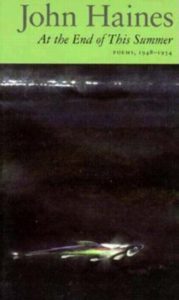 AT THE END OF THIS SUMMER, POEMS 1948-1954, John Haines. Copper Canyon Press, PO Box 271, Port Townsend, WA 98368, 1997, 80 pages, $14 paper, https://www.coppercanyonpress.org/.
AT THE END OF THIS SUMMER, POEMS 1948-1954, John Haines. Copper Canyon Press, PO Box 271, Port Townsend, WA 98368, 1997, 80 pages, $14 paper, https://www.coppercanyonpress.org/.
A friend gave me this book a number of years ago, and though I have occasionally read around in it, I had never read it straight through, as a book, until today.
I know John Haines better by his late poems, set in Alaska where he lived for many years. The poems in At the End of This Summer are from early in his career, what he describes in the preface as an “apprenticeship” (ix). In the preface, he also explains why he chose to share them here: “It would not be too much to say that at some point in that early period I had simply caught fire with the written word, a passion that held me in spite of every obstacle and momentary distraction.” A worthy goal for any beginning poet, to catch fire with the written word.
Song
As if my love were like the bending year:
Bleak marvel I look upon with tenderness,
There is no outcast singing, she rides high
In a maze of cloudy passion, a tower of seeming,
Drunk with the snowless winds
That cry for that white veiling. Oh, more than present,
Long ago we felt the parched leaves fall —
Be gathered with them, you mindless snore of death.
Desire is mine; it is like that hopeful turning
When the earth sleeps beneath a blanket of sorry
Dead and does not move, appears unwatchful,
And yet, fair girl, she dreams.

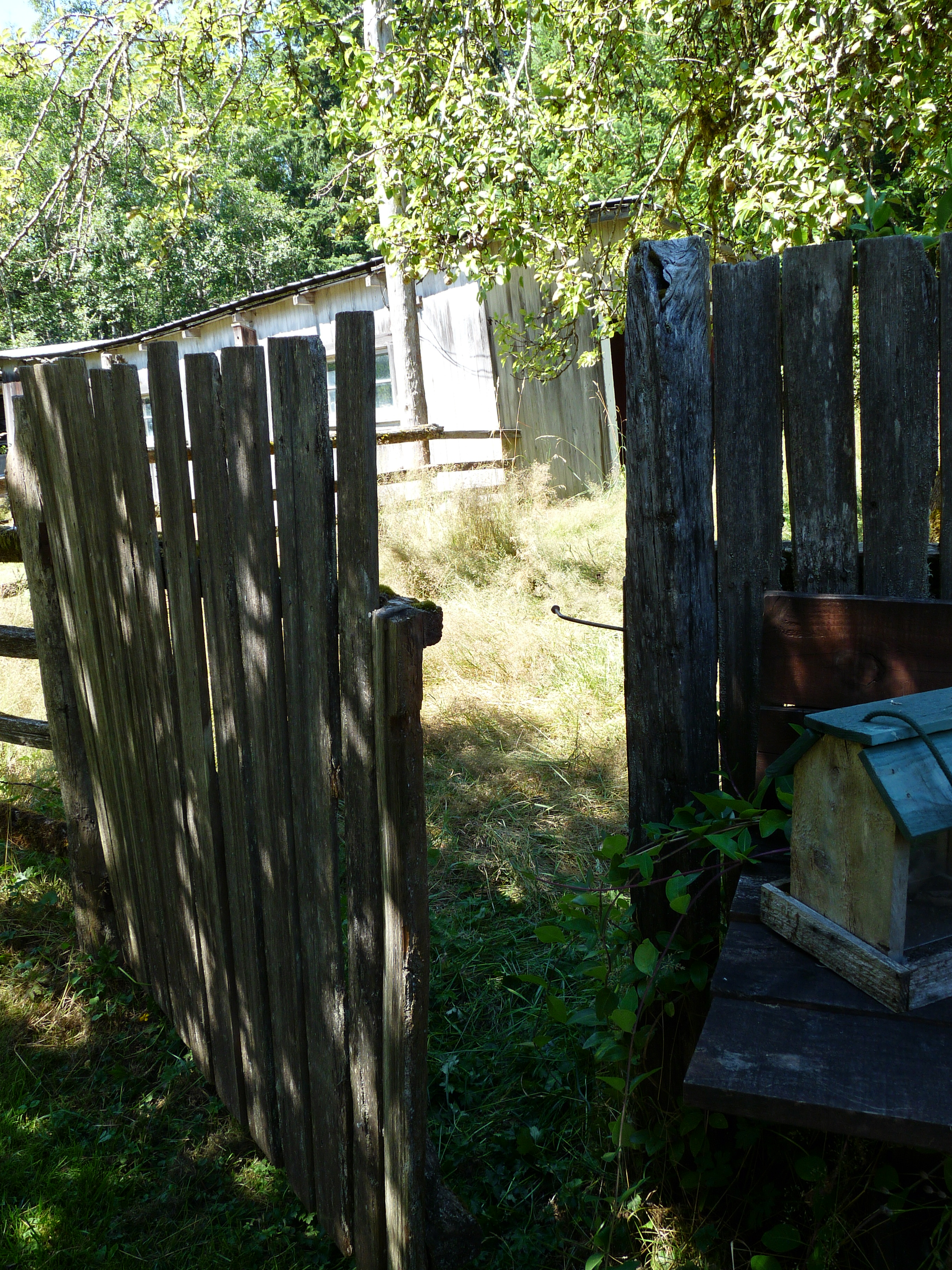

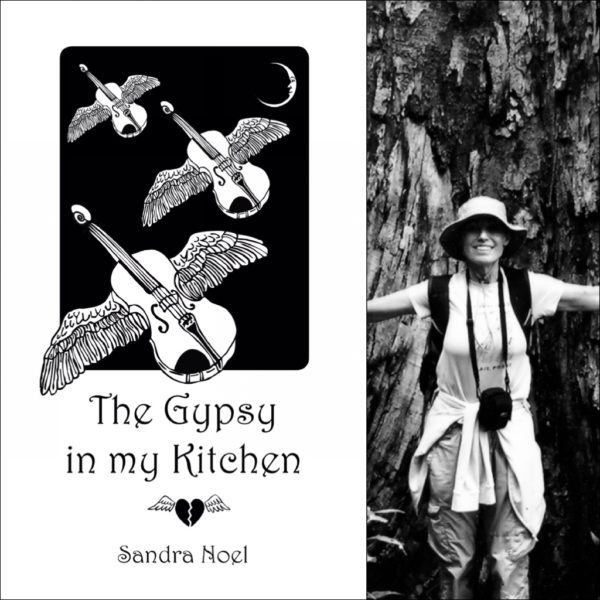
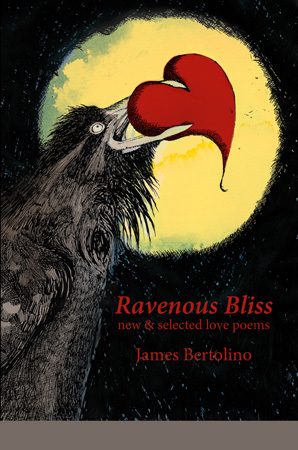
 RAVENOUS BLISS: NEW & SELECTED LOVE POEMS, James Bertolino. MoonPath Press, PO Box 1808, Kingston, WA 98346, 2014, 140 pages, $18 paper,
RAVENOUS BLISS: NEW & SELECTED LOVE POEMS, James Bertolino. MoonPath Press, PO Box 1808, Kingston, WA 98346, 2014, 140 pages, $18 paper, 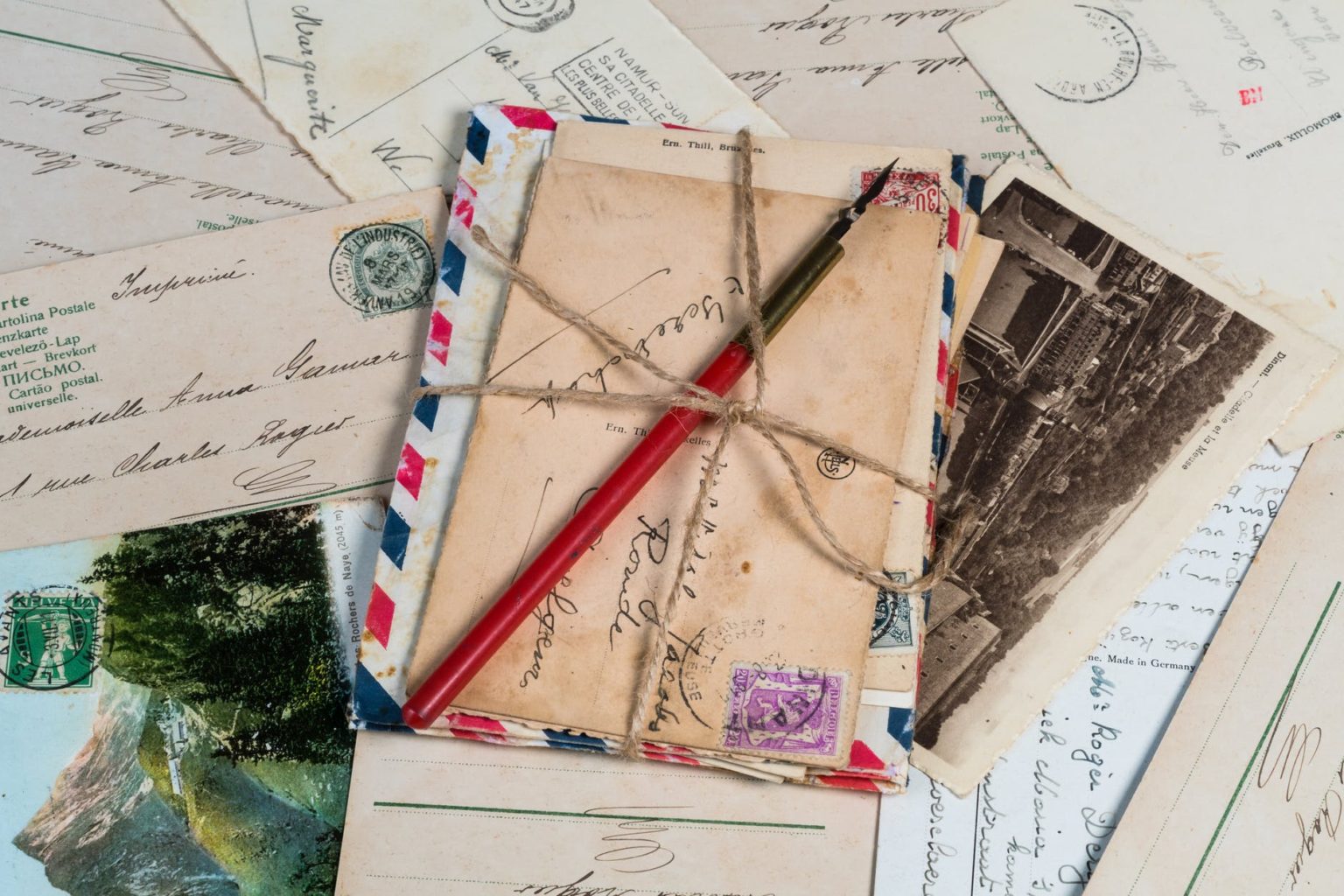
 multiple poetry events in her hometown of Bellingham, Washington), she’s a political activist for peace and justice, and a fierce advocate for indigenous peoples, as well as our beleaguered planet. No matter how bleak the headlines, she never despairs, but always sees a way through. She inspires me every day.
multiple poetry events in her hometown of Bellingham, Washington), she’s a political activist for peace and justice, and a fierce advocate for indigenous peoples, as well as our beleaguered planet. No matter how bleak the headlines, she never despairs, but always sees a way through. She inspires me every day.